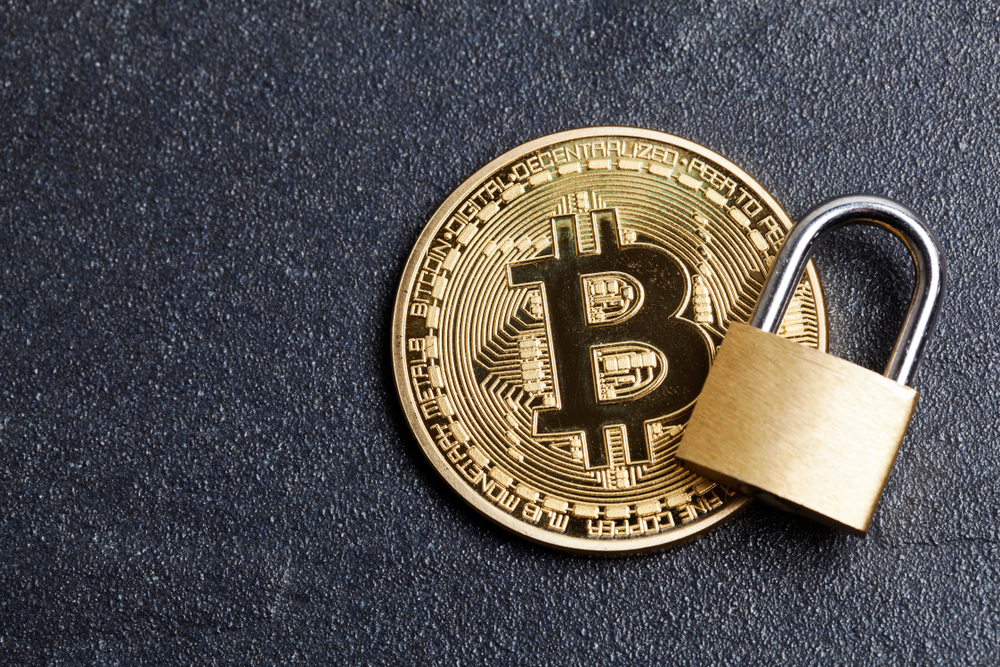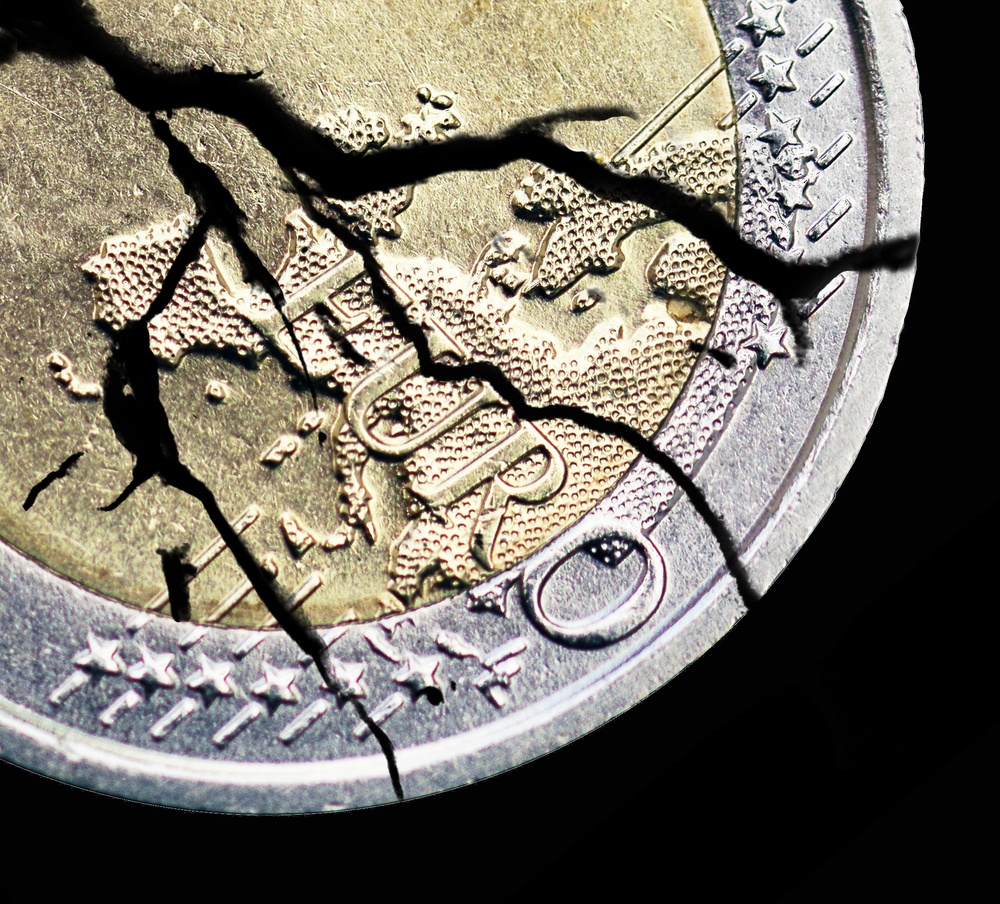This Anti-Bitcoin Op-Ed Just Took the QuadrigaCX Dialogue to a New Low

David Gerard's latest anti-Bitcoin tirade sank crypto discourse to a new low. Source: Shutterstock
Writing for Foreign Policy, David Gerard levies the following taunt : “Forget Bitcoin, try your mattress – cryptocurrency is about as safe as keeping your money in a sock under someone else’s bed.”
David Gerard Lays into Bitcoin

Yeah, tell that to the guy whose kids are playing with his change for a cup of coffee.

No really. What if your money doesn’t fit under your mattress?
It’s happened to many people before.
Hyperinflation Happened in Germany after World War I

And it’s no joke.
It’s very serious when something like this happens.
The French Third Republic levied its first income tax to pay for the war.
But German Emperor Wilhelm II and the unanimously approving German parliament chose to suspend the convertibility of Deutschmarks to gold.
They financed the war with debt and monetized the government’s debt with paper notes.
The results were strange and ground German economic productivity to a halt.
Hyperinflation Happened in Zimbabwe in the 90s

Look at the issue date on those.
And you thought the Fed made a lot of money in 2008.
An entire nation’s money worn so thin there’s nothing left after years or decades of state-run banks stealing their money’s buying power by making more of it to pay the lavish bills of whoever’s got the most guns. And a nation usually has to be in really bad shape politically, under the heel of a dictatorial government for its currency to debase so badly.
Hyperinflation is Happening in Venezuela Now

This image of Venezuelan bolívar fuerte 50,000, 20,000, 10,000, and 5,000 Bs.F. banknotes is on Flickr with the caption:
“El dinero representa poder, también energía. Sólo que con él no se compra la paz.”
“The money represents power, also energy. Only with him peace is not bought.”
Power and energy cannot buy peace. It’s true. El precio de la libertad es la eterna vigilancia.
Sometime last year in late 2018 the Venezuelan government converted the bolívar fuerte to the bolívar soberano at a rate of 1 Bs.S. to 100,000 Bs.F.
So that 50,000 bolívar bill pictured above is now a fiddy cent piece.
The Strange and Terrifying World of Hyperinflation
It’s ridiculous and strange to be sure.
When hyperinflation hits, there is a sudden exponential growth in the amount of circulating currency including that in banks’ reserves and subsequent exponential growth in prices.
More and more zeros start getting added to the prices of everything, and then there is a government reaction and re-denomination of the currency that drops all the zeros back off again, acknowledging that adding the zeros to all the money didn’t make it worth more.
It made the money worth massively less.
While brazenly redistributing massive amounts of wealth from the people furthest downstream in the economy from the source of new fiat money flooding into it…
To the people furthest upstream and closest to the source of the new money, the ones who got to spend each new round of money first before it debased the currency.
First World Problems: Could Hyperinflation Happen to You?

Sure, maybe you’re reading this from a first-world country, wondering: “Could hyperinflation actually happen to me?”
Maybe.
People facing hyperinflation are the use cases for Bitcoin:
https://youtu.be/5pO0z-jYx18
Gerard says in his Foreign Policy op-ed:
“Bitcoin, its advocates keep saying, is the future. But in practice, it looks a lot like the distant past. Back then, you could lose your savings if your banker ran off with your money or died without revealing where it was stored. Today, there’s numerous protections in place for consumers—unless, that is, your cash is in bitcoin.”
For people who live in one of the many national economies of the world facing a currency crisis, they might be more likely to lose their savings or find the banker has run off with their money if they keep it in their national bank accounts or even its cash banknotes.
So Don’t Talk To Me About Mattresses, Mr. Gerard
David Gerard really shouldn’t joke about keeping money in a sock under a mattress. For 10 million Americans, something like that is the closest to a checking or savings account they have. They are the unbanked. You have heard of the homeless.
Some estimates place their numbers at around half a million in the United States.
But the FDIC estimates as many as 10 million American adults are bankless .
Rest in Peace, Gerald Cotten
Gerard goes on to say:
“In Canada, the Quadriga cryptocurrency exchange has gone into bankruptcy protection, leaving its customers bust. An exchange is roughly like a bank for bitcoin; they make your money easier to use in practice. But unlike a bank, there’s usually no guarantees, protections, or reassurances that your money and its holder won’t disappear to a remote island. Quadriga’s founder, Gerald Cotten, apparently died in December. Quadriga finally revealed the news in January, and shortly after the exchange applied for protection from nearly $190 million in outstanding liabilities as it scrambled to find any lurking assets.”
This was a very unfortunate turn of events for a lot of people, not least of whom was Gerald Cotten, who died at a young age from Crohn’s disease while running an important business.
Warning: Minimize Your Exposure to These Risks!

This amazingly proverbial story should serve as fair warning to people getting into the crypto space that you might want to think about how you minimize the exposure of your crypto assets to these kinds of risks.
Bitcoin was envisioned primarily as private digital coins with built-in bank security, so that you would not have to trust any institution or third party to safeguard your own bitcoins for you.
Letting an exchange hold the keys to your cryptocoins and trusting them not to make a stupid mistake, not to get hacked, not to steal your coins and disappear, not to die – is missing out on one of the great features that make cryptocoins highly valued and sought after commodities.
Fiat Money Has Critical Bottlenecks Too – By Design

People holding currencies that are devalued like those banknotes above have also put their trust in a third party to safeguard their money as a reliable store of value.
When their cash and savings disappeared because the banks stole it by relentlessly pumping reserves full of new money, the problem was a bottleneck problem like the bizarre policy of making Gerald Cotten solely responsible for extremely critical information for tens of millions of dollars’ worth of crypto assets.
In the case of these hyperinflationary events, the bottleneck isn’t an information bottleneck, it’s a bottleneck of control. Only a very select few elite financial bureaucrats get to control the total amount of fiat currencies that aren’t strictly backed by a one to one ratio of a reserve of some hard commodity like gold.
With Bitcoin, the total amount of bitcoins is limited by the protocol, and anybody with a computer capable of running the software can play by the same rules as everybody else to earn bitcoin (though these days mining is restricted to specialized computers).
Punching Down in the Wake of the QuadrigaCX Saga is Bad Form
Gerard proceeds to make the dubious claim that Bitcoin has failed over a cryptocurrency exchange owner dying and his customers losing tens of millions of dollars. It’s got to be one of the least considerate screeds I have read in the cryptosphere.
I don’t know if that was intentional or not, but boy does it show some lack of awareness. Or at least where I’m from this would be considered very cold and profoundly inconsiderate:
“This wasn’t a unique problem. Quadriga’s collapse follows from the nature of bitcoin and why it failed as an electronic form of cash, leaving people worldwide stranded in its wake. Most financial institutions with thousands of customers and millions of dollars in holdings have bureaucratic and technical systems in place for such misfortunes. Unfortunately, Quadriga did not—and that’s sadly typical of exchanges.”
“Does Gerard have anything better to say?,” I’m wondering at this point in the article, than to kick Bitcoin while a bunch of people are hurting and suffering from enormous losses from a terrible situation? What’s the lesson to learn from this?
I’ve already written what I think is an important lesson not to learn the hard way from this and given some practical advice to people interested in saving some of their money using bitcoin, as well as an overview of why people in many places around the world will be motivated to use cryptocurrency.
Does Gerard have anything better than a quip about stashing your cash in your bed?
Spoiler: He does not. He just thinks it’s a fine time to roast Bitcoin on Foreign Policy by calling out the terrible, costly mistakes of an exchange owner who just died and using that to gloat over the failure of Bitcoin. The dialogue has really sunk to a new low.
Disclaimer: The views expressed in the article are solely those of the author and do not represent those of, nor should they be attributed to, CCN.com.